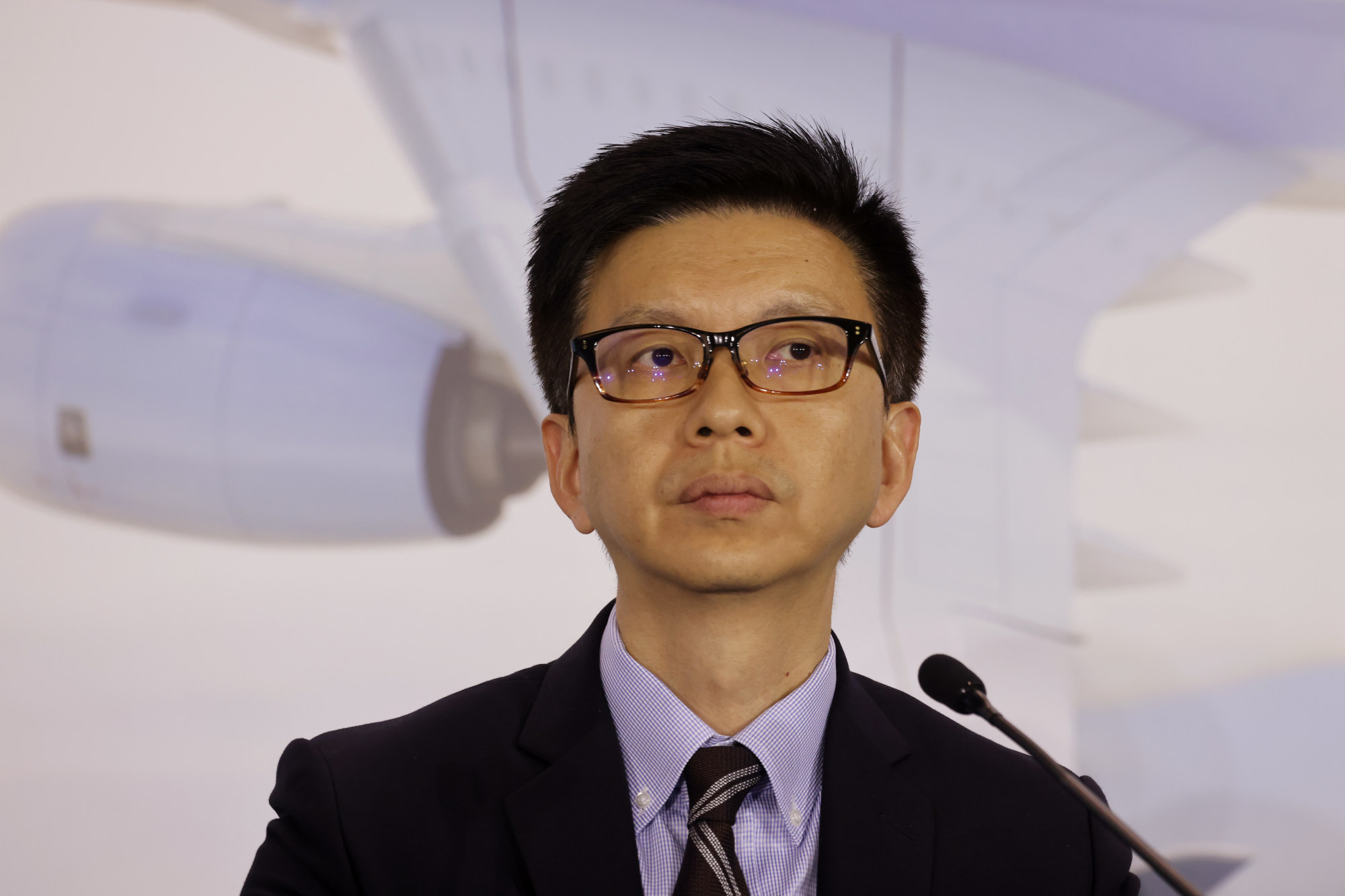
Hong Kong’s Cathay Pacific to pay government HK$1.5 billion owed in deferred dividend payments at end of month
- Airline will not tap HK$7.8 billion bridging loan extended as part of restructuring deal reached during pandemic
- Company ‘confident’ rebuilding effort on right track, says CEO Ronald Lam
The dividends will be the carrier’s first to the government since the financial lifeline was extended in 2020, after the company postponed payments five time in a row.
The Cathay Pacific Group on Tuesday also said it would not need a HK$7.8 billion bridging loan extended as part of the restructuring plan. The offer expires on Thursday.
CEO Ronald Lam Siu-por said the government’s support had enabled the company to navigate the most challenging period in its history, and the airline was operating cash generative as travel restrictions had lifted and demand returned.
“Our financial position remains healthy,” he said. “As such, we feel confident that our journey of rebuilding Cathay for Hong Kong is on the right track, and now is the appropriate time to begin repaying the support that the government has shown us.”

The carrier pledged it would pay on June 30 the HK$1.52 billion in deferred dividends owed on HK$19.5 billion in preference shares the government acquired as part of the HK$39 billion rescue package. The preference shares, equity with restricted voting rights, gave the government a 6.5 per cent stake in the company.
It also said it would pay all future dividends owed on the shares on time and would redeem the preference shares “in due course”, without giving a timeline.
The company posted a HK$2.26 billion profit in the second half of 2022, but recorded a net loss of HK$6.5 billion for the entire year.
The carrier is running at about 50 per cent of pre-Covid-19 capacity, but aims to raise the level to 70 per cent by the end of this year and 100 per cent by the end of 2024.
The recapitalisation plan required Cathay to pay dividends once every six months, but it has postponed them five times.
The dividend rate is 3 per cent per annum for the first three years, which will increase to 5 per cent in the fourth year and 9 per cent for the remaining ones. The structure is aimed at encouraging Cathay to redeem the preference shares at the earliest possible time.
Other than the preference shares and the bridging loan, the recapitalisation plan included HK$11.7 billion worth of rights issues sold to existing shareholders.
Law Cheung-kwok, a senior adviser at Chinese University’s Aviation Policy and Research Centre, said Cathay’s dividend payment demonstrated its improved financial performance in the first half of this year after a string of losses, signalling a turnaround.
“Cathay restored 40 per cent of its pre-Covid business in the first half of this year, better than the second half of last year. I foresee that there will be a much stronger rebound in the first half of this year from last year,” he said.
“Overall speaking the company can turn a profit this year and may even be able to redeem the preference shares in due course.”
Economist Simon Lee Siu-po, an honorary fellow at the Asia-Pacific Institute of Business at Chinese University, said Cathay was likely to enjoy strong growth in the second half of 2023.
“The price hikes in air fares have made up the company’s capacity shortfall. The move shows that Cathay has a healthy cash flow, which enables it to make the deferred dividend payments,” he said.
“The chance is high that the company’s business can be fully restored to its pre-Covid levels next year.”
Shukor Yusof, founder of aviation advisory firm Endau Analytics, said Cathay’s pledge to redeem the preference shares was aimed at bolstering market confidence, and showed the company was demonstrating its financial strength despite posting a significant loss in the previous financial year.


